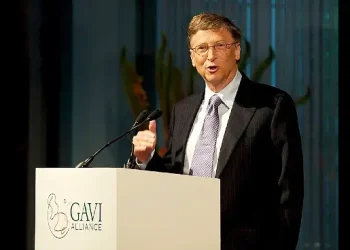The UK has announced a significant £61 million humanitarian aid package to address dire humanitarian needs in the Middle East, Africa, and Asia.
Humanitarian Aid Package Announced
The Minister for Development has announced an urgent humanitarian aid package worth £61 million, aimed at supporting vulnerable communities worldwide.
This funding is part of the UK’s Plan for Change, focusing on tackling migration flows upstream, addressing the climate emergency, and combating global poverty.
Implementation and Details
The £61 million funding will be distributed across several regions.
The UK will direct £22 million to respond to escalating crises in the Middle East, and allocate £34 million to alleviate high humanitarian needs in Burkina Faso, Mali, Niger, DRC, Somalia, Myanmar, and Bangladesh.
Specifically, up to £5 million will bolster the partnership with the World Food Programme (WFP) in the DRC, enabling 48,000 more people to meet their immediate needs.
Additionally, up to £5 million will be used to respond to the devastation caused by Tropical Cyclone Chido in Mozambique, focusing on emergency shelter, clean water, and sanitation needs for around 350,000 affected individuals.
Broad Impact and Stability
This humanitarian aid package is designed to contribute to global stability and security. By addressing the root causes of migration and supporting vulnerable communities, the UK aims to reduce the pressure on its borders and enhance regional stability.
The Prime Minister has emphasized that stability in the Middle East is crucial for delivering security at home, highlighting the UK’s commitment to playing a more present and consistent role in the region.
Central Impact
- Supporting over one million people in Myanmar with lifesaving treatments for conditions such as malaria and improved access to sexual and reproductive health services
- Providing emergency aid to 350,000 people affected by Tropical Cyclone Chido in Mozambique by the end of 2024
- Assisting 48,000 internally displaced people in the DRC through the WFP partnership
Official Response
“This funding is a vital part of our commitment to support global stability and address the humanitarian crises that are driving migration flows. We are determined to make a difference on the world stage and protect the most vulnerable.” Minister for Development, UK Government
The Minister’s statement underscores the UK’s commitment to humanitarian aid and its role in maintaining global stability.
This funding aligns with the UK’s broader strategy to address the root causes of migration and support vulnerable communities worldwide.
Current Status
- 305.1 million people are expected to require immediate humanitarian assistance in 2025, according to the latest UN report
- The UK has provided over £4.3 billion in aid to assist Syrians across the region since 2012
- Up to 300,000 people have been internally displaced in the DRC since August despite the ceasefire
Regional Effects
The humanitarian aid will have significant regional impacts. In Myanmar, for example, the funding will improve access to healthcare services, particularly for maternal and sexual health interventions.
In Mozambique, the aid will help rebuild infrastructure and provide essential services to those affected by Tropical Cyclone Chido.
“The UK’s support is crucial for us to rebuild and recover from the devastating effects of the cyclone. It will help us provide immediate relief and long-term solutions for our communities.”
Dr. Maria Nhantumbo, Director of the Mozambican National Disaster Management Agency.
The Takeaway
The UK’s £61 million humanitarian aid package is a significant step in addressing global humanitarian crises and supporting vulnerable communities. This initiative not only provides immediate relief but also contributes to long-term stability and security, both regionally and domestically.
The UK’s humanitarian aid commitment reflects its strategy to engage globally, support stability, and protect vulnerable populations worldwide actively.
This approach is crucial for addressing the complex challenges of migration, climate change, and global poverty.









